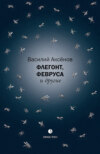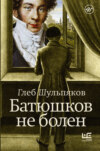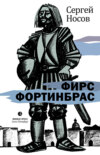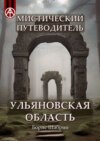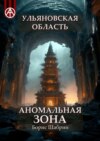Loe raamatut: «LZ-’75: Across America with Led Zeppelin»
LZ-’75
The Lost Chronicles of
Led Zeppelin’s 1975
American Tour
Stephen Davis
FOURTH ESTATE - London
Contents
Cover
Title Page
Prologue
CHAPTER 1 Cold Might on Boone’s Farm
CHAPTER 2 Key to the Highway
CHAPTER 4 Vision of the Future
CHAPTER 4 A Giant Hug for Led Zeppelin
CHAPTER 5 He Cried Twice That Night
CHAPTER 6 Hell-Bent for Valhalla
CHAPTER 7 A Complex Die-Cut Affair
CHAPTER 8 The True Pride of Led Zeppelin
CHAPTER 9 Expansive Spiritual Vistas
CHAPTER 10 Savant of the Occult
CHAPTER 11 Lap of Honor
CHAPTER 12 Journey to Middle Earth
CHAPTER 13 Hot Tea with Lemon, Please
CHAPTER 14 Aware of the Energies
CHAPTER 15 The Magus of Franklin Street
CHAPTER 16 Drones and Cones of White Noise
CHAPTER 17 A Spiritual Quest
CHAPTER 18 In Our Glory
CHAPTER 19 Little Red Corvette
CHAPTER 20 The Smiling Dog Saloon
CHAPTER 21 Letter from a Fan
CHAPTER 22 Abrupt Change of Weather
CHAPTER 23 The Pipes of Pan in L.A.
CHAPTER 24 The Loud Drummer
CHAPTER 25 A Spiraling Vortex
CHAPTER 26 Dionysus in San Diego
CHAPTER 27 The Prairie Princess
CHAPTER 28 The Golden God
CHAPTER 29 Access All Areas
CHAPTER 30 The Application of Attitude
CHAPTER 31 Tomorrow Will Be Too Late
CHAPTER 32 Little Sister
CHAPTER 33 Cherry Bombs and Toilet Paper
CHAPTER 34 A Town of Great Fishermen
CHAPTER 35 Transmitter of the Gods
CHAPTER 36 Hardest Core Rock
CHAPTER 37 The Exiles Return
CHAPTER 38 The Hard Road to Presence
CHAPTER 39 Clean and Purifying Riffs
Epilogue
Acknowledgments
Copyright
About the Publisher
Prologue
Led Zeppelin rarely let journalists anywhere near the band. Shortly after guitarist Jimmy Page founded the English rock group in 1968, relations with the press deteriorated to the point of outright hostility on both sides. Early reviews of Led Zeppelin’s recordings and concerts were negative, unkind, and even vitriolic. Led Zeppelin was described as an unholy amalgam of hype, money, depravity, and Satanism. The band retaliated by banning writers and photographers from their shows, with the exception of a few trusted people who could be counted on to write positive articles and make authorized, band-approved photographs. There were also reliable accounts of journalists being assaulted by members of Led Zeppelin; being spat on; having drinks flung in their faces.
“The press,” as it was known, was terrified of Led Zeppelin. All this changed, somewhat, in 1975. By then, Led Zeppelin was the biggest, highest-grossing rock band in the world, as well as the booming music industry’s biggest act. The records shipped platinum. The tours sold out in moments. Zeppelin started a record label, and the products started selling tonnage as well.
But in 1975, the mainstream media didn’t play along. The rock press was eager for any piece of Led Zeppelin, but as the band prepared a new album of songs, maybe its best ever, and a sold-out tour of North America, the band’s media representatives found certain doors slamming shut and important phone calls unreturned. So it was decided that Led Zeppelin would take the unprecedented step of inviting carefully selected writers, editors, and photographers from the regular media to come along for a taste of the tour from the inside. Backstage passes would be doled out, interviews would be given, a tour photographer was hired. Rolling Stone magazine, hated by Led Zeppelin for unfair treatment since 1969, would be courted. An elite from this small constituency would even be offered the occasional seat on “Starship One,” Led Zeppelin’s flying gin palace, a converted Boeing 727 jetliner, as it ferried the musicians in excelsis, across time zones, state lines, and states of mind.
I was one of those writers.
Between January and March 1975, I covered Led Zeppelin’s tenth American tour, as a magazine journalist. I was well treated by the band, its management, and the road crew, and the whole thing was an adventure. Led Zeppelin paid for everything. I heard a lot of great music, and also witnessed concerts that were far less than brilliant, illustrating how a long, hard-fought rock campaign could be undermined by illness, exile, homesickness, weather, drugs, and alcohol. In other words, I saw that the current gods of rock were mere mortals after all.
While I was on duty in 1975, I kept three notebooks detailing the daily progress of the Zeppelin tour as I was covering it. Some entries were more personal, sketching characters I met, and various situations and experiences. On the notebook’s covers I scribbled LZ-‘75. After I wrote my article, I put the LZ-’75 notebooks in a drawer and forgot about them.
Jump ten years to 1985. I’d been searching for the LZ-’75 notebooks for two years because I was writing a biography of Led Zeppelin, which had disbanded five years earlier after drummer John Bonham died. But I’d moved houses, and the notebooks had been misplaced. I had a few details of that period—Zeppelin’s most important North American tour—from the manuscript of the old magazine article, but most of the in-the-moment, on-the-road 1975 incidents from my notes were absent from Hammer of the Gods: The Led Zeppelin Saga, which nonetheless became an international best seller when it was published in 1985. (I think this happened mostly because, at the time, there was so little available information about Led Zeppelin’s twelve-year career. There were no Zeppelin videos on early MTV, and although Robert Plant remained active, he didn’t play any of the old songs in concert. In the sudden and complete vanishing of Led Zeppelin after 1980, as if a malign spirit had been banished from the world, millions of rock fans had become obsessed by the legendary band’s raw power, addictive charisma, and hellacious mystique.)
Another ten-year jump, to 1995. I was traveling with Aerosmith while collaborating on the band’s autobiography. One night in Buenos Aires, Jimmy Page asked Joe Perry to give the induction speech marking Led Zeppelin’s entry into the Rock and Roll Hall of Fame that year. Joe enlisted bandmate Steven Tyler to share the speech, and asked me to write it. Joe said he wanted some new material about Led Zeppelin, not a rewrite of Hammer of the Gods. Again I searched for the elusive LZ-’75 notebooks, but they were still missing. Somehow, though, I knew they weren’t gone, only hiding. I ended up with a speech about Aerosmith’s early and slavish appreciation of Zeppelin, voiced by the principals themselves. Steven Tyler, who had begun his career as a drummer, choked up during his tribute to John Bonham. After the evening’s speeches, there was one hell of a rock jam in the Waldorf-Astoria ballroom that night.
Ten years after that, in 2005, I finally found the LZ-’75 notebooks. It had been three decades since I had covered Led Zeppelin. The notebooks were in a veritable cardboard 1975 time capsule that also preserved some eight-track tapes, the keys to my old BMW, a ceramic bong, six C-90 tape cassettes of interviews, a thick file of news clippings, Polaroid snapshots and several (now archaic) photographic contact sheets, press releases from the Led Zeppelin office, unused concert tickets, New York subway tokens, a cocktail napkin from the Continental Hyatt House in West Hollywood with scribbled phone numbers, various Zeppelin backstage passes, a letter from William S. Burroughs, a goatskin Moroccan kif pouch, and a bundle of teenage fan mail to Led Zeppelin, all dated 1975.
Two years later, Led Zeppelin reunited for a charity concert in London. This single show in December 2007 ignited a planetary wave of interest in the band, with tens of millions reportedly applying online for the 20,000 available tickets. There was a period of intense speculation and hope that this epochal (and famously contentious) group could re-form around the son of its late drummer and reconquer Planet Rock with its dark combo of black magic and Woodstockian fantasy.
But this didn’t happen.
Around then, I began to reread the LZ-’75 notes and discovered there was a story that could be told about being around Led Zeppelin at the apex of the band’s career. The year 1975 was fateful for Led Zeppelin; an examination of what happened to the four musicians during that year could be intriguing to their legion of fans, a legion that has expanded across three generations. And these were, looking back, extremely interesting times. In America, a president had been forced from office in August 1974 over the pointless Watergate burglary. England was plagued with shortages and strikes, and was routinely predicted to be on the verge of chaos. The Vietnam War was still being fought. It was the era of Idi Amin, Pol Pot, Carlos the Jackal, and ABBA. Jamaican reggae music was fighting an insurgency against disco for the soul of the dance floor. Bob Marley was alive and well. In London, the new punk bands were beginning to rehearse in the back rooms of Kings Road boutiques. But Led Zeppelin, secure within its own secret society, operated outside the temporal runnings; few of 1975’s headlines really matter to our story. So I’ve combined my firsthand account with other reliable sources, some recently discovered, and added musical data informed by the nearly complete library of bootleg recordings of the band’s 1975 concerts.
LZ-’75 is a personal portrait of the greatest rock band in history, at the apogee of its flight. For Led Zeppelin, everything they had done until then led up to the epic music they would create in 1975: a year of travel, incredible artistic success, personal exaltation, near-death traumas, and a creative rebirth under painful hardship and dislocation. It was the top year for the band. After 1975, Led Zeppelin would never be the same again.
—S.D.
CHAPTER 1 Cold Might on Boone’s Farm
The trouble started, as it often does in Boston, on a freezing winter night. This was in January 1975. The city’s radio stations and street papers had announced that tickets for Led Zeppelin’s first North American tour in two years would go on sale at the city’s main arena, Boston Garden, at ten o’clock on a Tuesday morning.
The kids started lining up on Causeway Street, outside the arena, at six o’clock on Monday night, January 6. They were a young crowd of suburban teenagers—Zeppelin’s hard-core audience—and by nine o’clock they numbered around 500. A few had tape players, and songs from Led Zeppelin, Led Zeppelin II, III, and IV, and Houses of the Holy blared in the cold night air.
By ten o’clock, it was ten degrees outside, and someone made the decision to let the kids on line spend the night in Boston Garden so they wouldn’t freeze to death before the box office opened the next morning. A cheer went up as the kids, most of them wearing blue denim, were let into the building.
Soon they were passing joints and swigging from bottles of cheap Ripple and Boone’s Farm apple wine. When that ran out, some kids broke into the beer concessions during a shift change of the security guards. Someone opened an exit door and let in a few hundred more kids who had arrived to line up for tickets. The kids turned on the fire hoses and flooded the arena’s hockey rink. The police arrived as Led Zeppelin’s fans were looting merchandise stands and lighting bonfires composed of the Garden’s old wooden seats. Drunken kids then turned the high-pressure fire hoses on the cops and their dogs. It took the riot squad three hours to chase the kids out of the building. The Zeppelin fans then fought the police in the streets until they were dispersed sometime after midnight.
The box office failed to open on Tuesday morning. Damage was estimated at $50,000. A Boston Bruins hockey game was canceled because the rink was fucked up. Then the mayor of Boston, after visiting the sacked and still-smoking arena, declared the city would refuse to grant the local promoter a permit to hold the February 4 concert. Led Zeppelin would be forced to bypass Boston on their 1975 American tour.
When things get out of control, everyone loses money. So promoters in other cities took note. An official from the Ticket-ron agency, the nation’s biggest ticket-seller, contacted Jerry Weintraub, the concert promoter Zeppelin shared with Elvis Presley, and asked him to postpone announcement of ticket sales, but Weintraub refused to go along. In New York, Madison Square Garden managed to avoid a riot by not announcing when Zeppelin tickets would go on sale.
“If we had,” a spokesman told The New York Times, “the youngsters would have stayed there all week.” But demand for Zeppelin’s three February shows in New York was so intense that lines began to form in substantial numbers anyway as word leaked out that the box office would open at one A.M. on Sunday morning. Sixty thousand seats for the three shows sold out in three hours. It was reported that 45,000 were sold through the box office and 15,000 sold through Ticketron.
It was different out on Long Island, one of the most passionate of Zeppelin’s suburban strongholds. Kids began to line up at the Nassau Coliseum, in Uniondale, three days before the box office opened. To prevent disorder, numbers were assigned to 2,000 people, who were then locked in the hockey arena’s exhibition hall and allowed to remain overnight, under guard. In the morning, only the first 900 buyers were able to buy all 20,000 tickets, leading to complaints about scalping and corruption in the ticket industry. When the cops told disappointed fans to go home, there was some shoving and cursing though no arrests.
But two miles away, six fans were arrested when an estimated 2,000 fans jammed into a Macy’s department store at the Roosevelt Field mall in Garden City. The line was orderly until twenty-five Nassau County policemen attempted to “reorganize” the waiting line. Some kids at the front of the line were evicted by the cops, and their places immediately filled by others, who seemed to be friendly with the police. Bryan Brett, nineteen, of Glen Cove, told the Times: “The cops pushed some of us out of the line, and other kids stepped in front, and they got the tickets while we got nothing after waiting for hours.”
Some of the kids told the cops they were crooks and assholes. There was shoving and threats. Six Zeppelin fans were arrested on charges of disorderly conduct and harassment. The Times reported that “the extent of any ticket scalping for the rock shows could not be determined yesterday. The Department of Consumer Affairs said it had not received any complaints.”
Led Zeppelin’s entire 1975 North American tour sold out within a few hours after its tickets went on sale. According to Jerry Weintraub, even Evis Presley was impressed.
“Well, I may not be … Led Zeppelin” the king of rock & roll would drawl. “But I can still pack ‘em in.”
Sure, Elvis. Anything you say. Viva Las Vegas.
Tasuta katkend on lõppenud.

